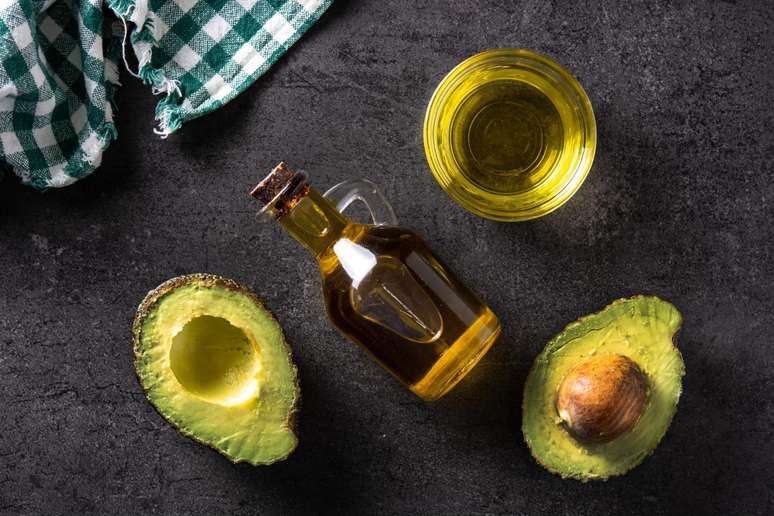Avocado oil can benefit your health in several ways. Find out which ones here
Avocado oil has recently grown in popularity as more and more people discover the benefits of incorporating sources of good fats into their diet.
This delicacy is a good source of fatty acids, known to support and protect heart health. It also provides antioxidant and anti-inflammatory substances, such as carotenoids and vitamin E.
And it’s also safe for high heat cooking and can be used in a variety of ways to create delicious, heart-healthy meals.
Below, everything you need to know about him.
Rich in fatty acids
Avocado oil is made up of 71 percent monounsaturated fatty acids, which are fat molecules that can help reduce bad cholesterol, one study shows.
Diets high in monounsaturated fats have been linked to numerous health benefits, including protection against heart disease.
Additionally, one of the main fats found in avocado oil, oleic acid, can help you maintain a healthy body weight by regulating appetite and energy expenditure and reducing abdominal fat.
It is a good source of vitamin E
Vitamin E is a nutrient that performs critical functions in the body. It functions as a powerful antioxidant, protecting cells from oxidative damage that could otherwise lead to disease. The nutrient is also involved in immune function, cell communication and other metabolic processes.
Additionally, vitamin E supports heart health by preventing blood clotting and promoting blood flow.
A two-tablespoon serving of avocado oil provides about seven milligrams (mg) of vitamin E, which equates to 47 percent of your daily value.
Contains antioxidant and anti-inflammatory plant compounds
Avocado oil contains plant compounds known to promote health, including polyphenols, proanthocyanidins and carotenoids.
These compounds help protect against oxidative damage and regulate inflammation in the body.
However, as with vitamin E, the process of refining the food can significantly reduce its antioxidant content. If you want to reap the benefits of the protective substances found in avocado oil, it is best to purchase the cold-pressed version.
May support heart health
As discussed, using avocado oil in place of saturated fats, such as butter, may help reduce heart disease risk factors, such as LDL cholesterol, and help reduce inflammation, which may help to protect heart health.
A small study involving 13 overweight people found that when participants replaced butter with this oil in a high-fat, carbohydrate-rich meal, post-meal levels of LDL cholesterol, total cholesterol, and inflammatory markers such as protein C- reactive were reduced.
NUTRITIONAL VALUES OF AVOCADO OIL
A one-tablespoon serving of unrefined avocado oil contains:
- Calories: 124
- Fat: 14 grams (g)
- Saturated fats: 1.62g
- Unsaturated fats: 9.88g
- Carbohydrates: 0g
- Fiber: 0g
- Protein: 0g
- Vitamin E: 3.5 mg or 23.5% of the daily value
RISKS OF AVOCADO OIL
The food is safe for most people. However, those who are allergic to avocado should generally avoid it.
Furthermore, like all fats, oil is a food rich in calories and should be used in small quantities. Excessive consumption of any high-calorie food can lead to weight gain.
However, adding healthy fats, such as avocado oil, to your diet can support overall health and aid in weight loss or control. Studies show that following high-fat eating patterns, such as Mediterranean-style diets, can be helpful in supporting weight loss.
HOW TO CONSUME AVOCADO OIL
It is a versatile fat that can be used in cooking and baking.
Due to its high smoke point, avocado oil can be used in high-temperature cooking methods, such as frying. It can also be used for finishing and preparing sauces and condiments.
Here are some ways to use the treat:
- In homemade salad dressings and marinades
- To complete dishes based on cereals, pasta and roasted vegetables
- For cooking meat, eggs, fish and vegetables
- As a substitute for butter in recipes such as cakes and bread
Source: Terra
Ben Stock is a lifestyle journalist and author at Gossipify. He writes about topics such as health, wellness, travel, food and home decor. He provides practical advice and inspiration to improve well-being, keeps readers up to date with latest lifestyle news and trends, known for his engaging writing style, in-depth analysis and unique perspectives.









